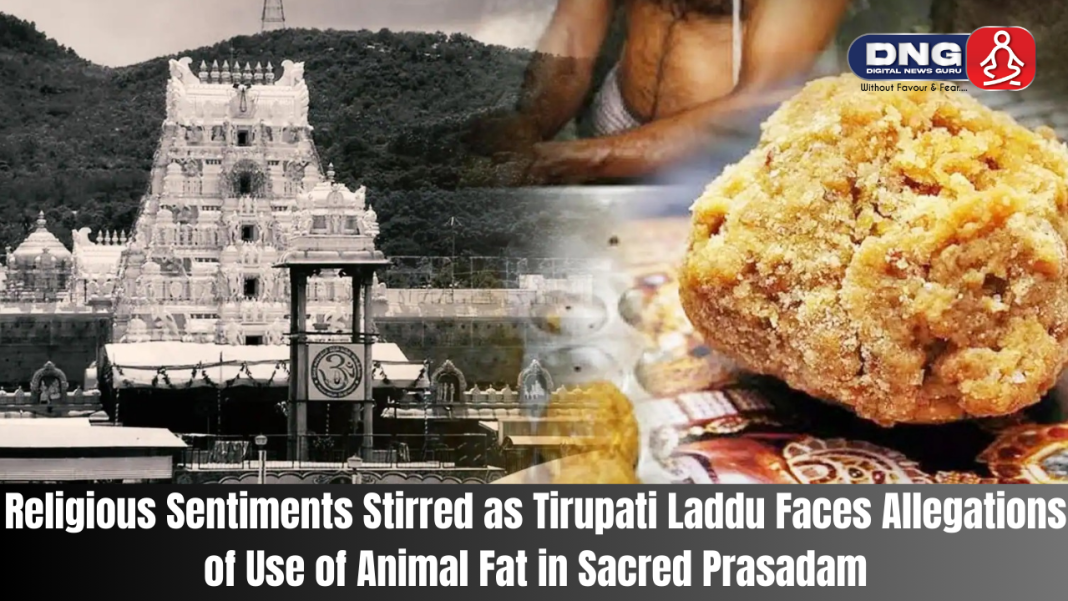DIGITAL NEWS GURU ANDHRA PRADESH DESK:
Religious Sentiments Stirred as Tirupati Laddu Faces Allegations of Use of Animal Fat in Sacred Prasadam
The Tirupati Laddu Controversy has become a major issue, stirring religious, political, and cultural sentiments across India.
It revolves around the allegations that animal fat—specifically beef tallow and lard—was used in the preparation of the sacred prasadam, the Tirupati laddu, which is distributed to devotees at the Sri Venkateswara Temple in Tirumala, Andhra Pradesh. This controversy has ignited a heated debate, with religious sentiments being hurt, political parties engaging in blame games, and temple authorities issuing statements to address public outrage.
Background of the Tirupati Laddu
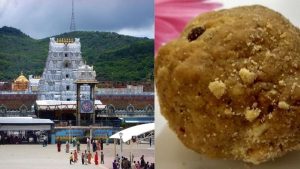
The Tirupati laddu is one of the most revered prasadams in India, offered at the Sri Venkateswara Temple, which is one of the richest and most visited temples in the world. This sacred sweet, made from traditional ingredients such as gram flour, sugar, ghee, cardamom, and nuts, has been offered as prasadam for decades, and millions of pilgrims eagerly seek it as a blessing from Lord Venkateswara.
The laddu has long enjoyed a special status, even receiving a Geographical Indication (GI) tag in 2009, which marks it as a product specific to a particular region and method of preparation. Its spiritual significance and purity are held in the highest regard, so any question about its ingredients is bound to provoke a strong response.
Allegations and Political Fallout
The controversy began when reports surfaced, claiming that the ghee used in the preparation of the laddus had been adulterated with animal fats, such as beef tallow and lard. These allegations first gained traction through social media, where images and documents circulated that purported to prove this claim. According to reports, a lab in Gujarat allegedly found traces of animal fat in ghee samples used for making the laddus.
These accusations quickly led to a political confrontation between the Telugu Desam Party (TDP) and the ruling YSR Congress Party (YSRCP) in Andhra Pradesh. The TDP’s spokesperson, Anam Venkata Ramana Reddy, condemned the YSRCP and demanded a thorough investigation into the matter, considering it an affront to Hindu religious beliefs. The Janasena Party (JSP) chief, Pawan Kalyan, also raised concerns, urging the Tirumala Tirupati Devasthanams (TTD), the temple’s governing body, to respond and clarify the situation.
Religious and Cultural Impact
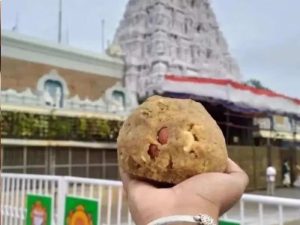
The core of the controversy lies in the deep religious significance of the Tirupati laddu. For millions of devotees, the laddu is not just a sweet but a holy offering from the deity. Any contamination or adulteration, particularly with animal products, would be seen as an act of sacrilege, especially given Hinduism’s general reverence for vegetarianism and the cow as a sacred animal.
The mere suggestion of beef tallow being used in the preparation of such a significant religious offering has inflamed religious sentiments. Social media has been flooded with posts expressing anger, disbelief, and demands for action. In a country where religious practices are closely intertwined with cultural identity, the controversy has sparked debates about the integrity of religious institutions and the protection of sacred practices from potential commercialization or negligence.
TTD’s Response

The Tirumala Tirupati Devasthanams (TTD) was quick to refute the allegations. TTD officials have repeatedly denied that any animal fat has ever been used in the preparation of the laddus. They emphasized that the temple follows stringent guidelines to ensure the purity of the prasadams and that all ingredients used are of the highest quality and sourced from trusted vendors.
TTD’s chairman, Y.V. Subba Reddy, expressed concerns over the spreading of such false information and stated that the temple would initiate legal action against those responsible for spreading baseless rumors. He also reassured devotees that a thorough investigation would be conducted to maintain the temple’s transparency and uphold its sacred traditions.
Legal and Investigative Actions
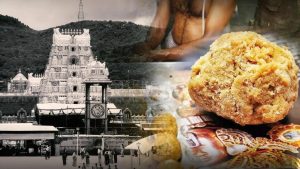
To address public concerns and restore trust, various political leaders and devotees have called for a formal investigation into the matter. This includes independent testing of the ghee used for the laddus and audits of the procurement processes involved. The Andhra Pradesh state government has also been urged to take steps to ensure the sanctity of the prasadam and the temple’s operations.
On the legal front, individuals responsible for spreading false claims might face prosecution for defamation and hurting religious sentiments. Temple authorities are determined to safeguard the reputation of Tirupati, one of the most sacred places of worship for Hindus worldwide.
Broader Implications
Beyond the immediate religious and political fallout, the Tirupati laddu controversy raises larger questions about the accountability of religious institutions, the commercialization of religious offerings, and the potential impact of misinformation in an era of social media. The incident serves as a reminder of how easily faith-related controversies can escalate in India, given the deep reverence for religious practices and institutions.
The issue also highlights the need for transparency and robust processes in religious institutions to prevent such controversies from arising in the first place. As the temple prepares to navigate this crisis, its response will likely set a precedent for how religious entities manage public relations, faith, and trust in the digital age.
Conclusion
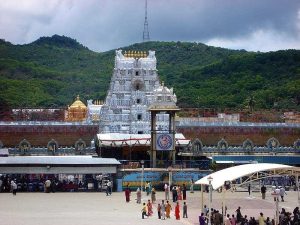
The Tirupati laddu controversy is more than just a dispute over ingredients; it reflects the deep intersections between religion, politics, and culture in India. As investigations proceed and temple authorities take steps to clarify the situation, the controversy will likely continue to shape public discourse, testing the resilience of faith in one of the country’s most sacred institutions. For now, millions of devotees are awaiting answers to restore their confidence in the purity of one of Hinduism’s most beloved offerings.
YOU MAY ALSO READ: PM Modi’s Srinagar Speech Highlights: ‘Naya Kashmir’ Vision, Urges End to Dynastic Politics and Promises Progress



